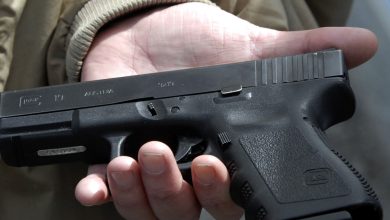Getting help with a kings scholarship application

There are numerous scholarship and bursary opportunities at King’s. Scholarships are offered each year to candidates who are able to demonstrate exceptional talent in their chosen field. This is to help and aid them with their studies. There is a process behind this and with this, there is also a stringent application process that comes with it. You can try and do this yourself or get specialist help from a dedicated education consultancy or specialist. They will make sure your application is filled out and carried out in the correct way. In fact, they may even advise you not to apply if you have a poor application.
Being a Kings Scholar
A King’s Scholar is a foundation scholar (elected on the basis of good academic performance and usually qualifying for reduced fees) of one of certain public schools. These include Eton College, The King’s School, Canterbury, The King’s School, Worcester, Durham School and Westminster School. As you can imagine, this can be most attractive for any parent.
King’s Scholars at Eton College
Eton needs very little introduction when you consider this school. It’s almost its own brand and has long been famed in UK education scene. It has been famed as the school for many of the UK’s prime ministers, royalty and the rich and famous. It is also a leader when it comes to King’s Scholars.
Also known as a Colleger
At Eton College, a King’s Scholar (known as a “Colleger” or colloquially as a “tug”) is one who has passed the College Election examination and has been awarded a Foundation Kings Scholarship and admitted into a house known as “College”, the premises of which are situated within the original ancient purpose-built college buildings. It is the original and oldest Eton house (strictly speaking it was established before the house system developed at Eton, for use by Oppidans) and consists solely of King’s Scholars ranging in age from 13 to 18.
At any one time there are about 70 King’s Scholars, who are distinguished by the wearing of a black academic gown over the usual school uniform of a tail-coat. They thus represent the original core of the institution founded by King Henry VI as a charity school to provide free education to 70 poor boys who would then go on to King’s College, Cambridge, founded as a sister institution by the same King in 1441. The other 1,200 boys at the school, the majority of whom pay full fees, and who appeared later in the history of the college, are known as Oppidans because they live not within the original ancient college buildings, but in boarding houses within the town (Latin: oppidum) of Eton.
King’s Scholars at King’s College Cambridge
The term King’s Scholar is also used for undergraduates at King’s College Cambridge who obtain first-class degrees. They receive a prize of £350, and are entitled to attend a ceremony in the King’s College Chapel at which they sign their name in the King’s Scholar book. A three-course formal dinner is held in the subsequent Michaelmas term, during which scholars dine for free with their respective Directors of Studies (DoS). The only time when scholars are not entitled to attend this ceremony is if they attain a first-class degree in their final year.
This is a historical hang-over from scholarships endowed by the college’s founder (King’s College Cambridge and Eton College were both founded by Henry VI, and are sister colleges). There had been a rumour that King’s Scholars could put KS at the end of their name. This was to denote their award. This has been proven to be nothing more than a rumour. This was in fact confirmed by the Senior Tutor of the college.
King’s Scholars at the King’s Schools
The seven King’s Schools at Canterbury, Chester, Ely, Gloucester, Peterborough, Rochester and Worcester were re-endowed or re-founded by King Henry VIII in 1541 following the Dissolution of the Monasteries, and award King’s Scholarships in his name. Originally all pupils at the King’s Schools were endowment-funded King’s Scholars. The King’s Schools now generally award the King’s Scholarship in recognition of academic or musical attainment. The Scholarship is often accompanied by a discount on school fees. By statute of Queen Elizabeth II, the King’s Schools were granted the right to award Queen’s Scholarships in 1973. This is in recognition of the reigning Queen. It is also because many of the King’s Schools, previously all single-sex schools, were moving towards co-education at the time.
King’s Scholars at the King’s School Canterbury
At the King’s School Canterbury, King’s Scholars are students who have taken the scholarship exam on entry or achieved exceptional grades in their GCSE, usually more than 9 A*. In previous years they wore gowns over their uniforms, a privilege now reserved for “purples” the heads of houses. Now all academic scholars have a white gown, worn to cathedral services. This is received at a special service in the cathedral where the scholars are admitted to the society. They also gain the right to walk down the aisle at cathedral services first. Scholars do also have the right to wear scholar jumpers. These are the same as the school black ones.
How private schools want the best children
Good schools want able children. This is whether they are academic superstars, winners on the sports fields or masters of art, music or drama. They raise schools’ results, add silverware to their trophy cabinets and lustre to their reputation. So many schools offer financial assistant to attract the brightest and most talented. Most private schools are run as charitable foundations. They have obligations to extend their provision to a limited number of children. This is for children who merit places but whose parents cannot afford the fees.
Overall
The most important thing is to be realistic about your child and your financial circumstances. If your child is doing nicely, about average in his state primary, enjoying his sport or music but not exactly a Marcus Rashford or a Sheku Kanneh-Mason, then he is probably not destined for a scholarship. If you have a semi in London and a cottage in Dorset, keep a boat and a string of horses and ski in Wengen every winter, you are unlikely to be taken seriously as a candidate for a bursary – however bright your child. However, if your child was reading at 3, knew his tables at 4 and devoured science books whole at 7, then you may have a potential scholar on your hands.



